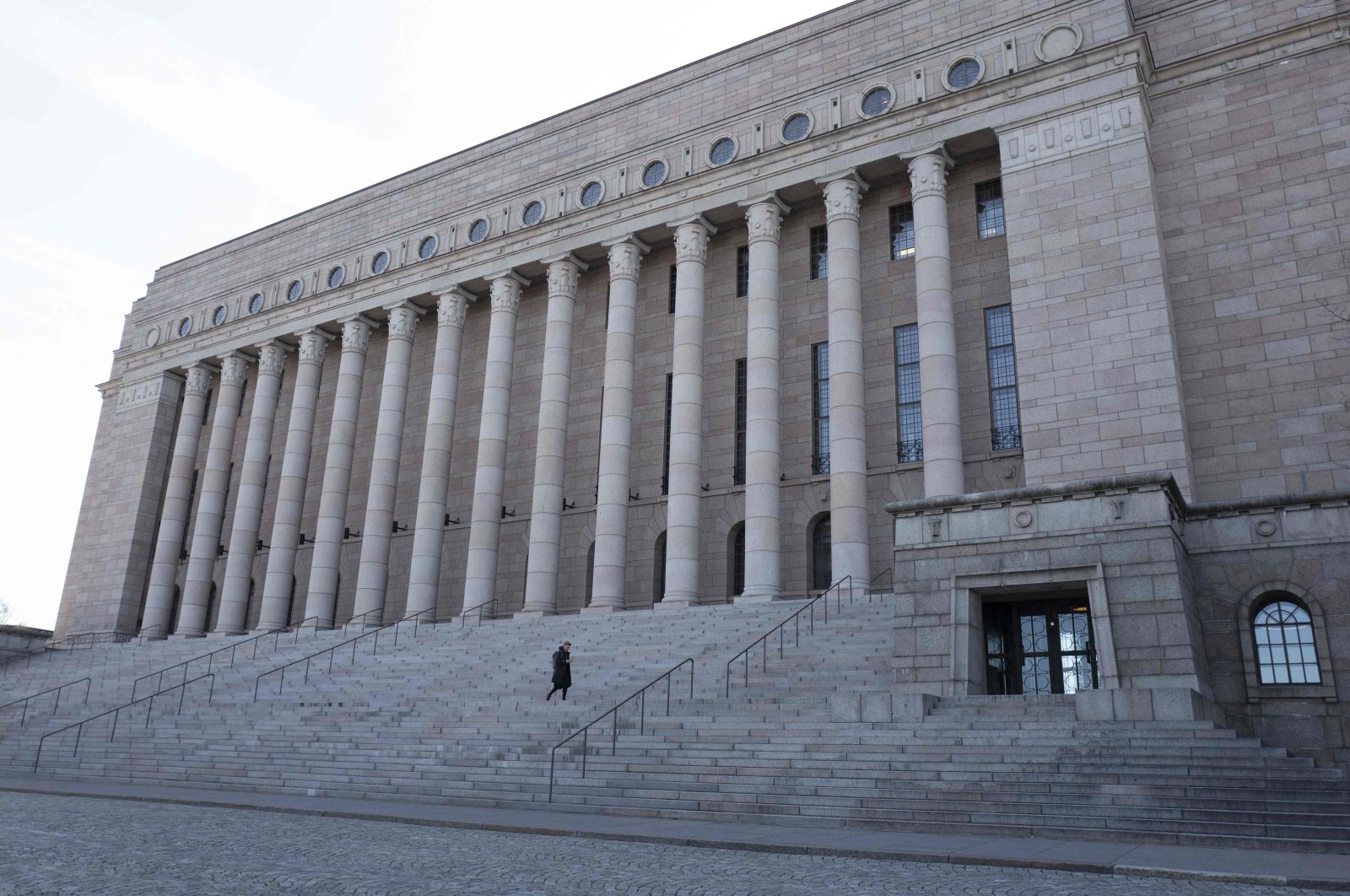
Numerous Finnish members of parliament have pushed for legislation affirming that Finland accepts the terms of the NATO treaty to be passed before the elections on April 2.
Finland will debate the bill on Tuesday, coinciding with a visit from NATO Secretary General Jens Stoltenberg – who will meet with Prime Minister Sanna Marin and President Sauli Niinisto.
A vote is expected by Wednesday, and having the bill passed means Finland can act swiftly even if the ratifications come in before a new government is formed.
The legislation is expected to pass without much opposition, as 188 of the 200 members in parliament supported the initial membership bid in May.
Helsinki has so far stressed its preference to join the alliance with Sweden. Still, some have interpreted the bill as signaling Finland is ready to move forward alone after tensions between Stockholm and Ankara.
Foreign Minister Mevlüt Çavuşoğlu said on Monday that Türkiye looked favorably on Finland’s bid.
"We may separate Sweden and Finland’s membership process,” he said.
While Sweden sympathizes with Finland’s position, Prime Minister Ulf Kristersson has said Finland’s joining alone could "complicate” the close military cooperation between the Nordic countries as Sweden is left alone outside of NATO protection.
A scandalous mid-January protest in Stockholm where an effigy of President Recep Tayyip Erdoğan was hanged by its feet in front of the city hall has particularly impaired negotiations, with a separate police-protected Quran burning session in front of the Turkish Embassy as the boiling point.
‘Not beyond the elections’
While passing the bill does not mean Finland will automatically join NATO after ratification by Türkiye and Hungary, it puts in place a deadline for how long it can wait for its neighbor.
The government’s chancellor of justice, Tuomas Poysti, said that after the parliament approves the bill, the president can wait three months to sign it.
After the president has signed the law, there is still some time to wait for Sweden, "a few weeks at most,” before depositing the instruments of accession to Washington.
President Niinisto told reporters on Wednesday that he intended to sign the law "as soon as parliament approves it,” but "if there are practical reasons, I can wait.”
"But not beyond the elections,” he added.
Some MPs, specifically in the Left Alliance party – which has been vocal in its NATO opposition in the past – believe Finland should have passed that law only after the ratifications to ensure coordinated accession with Sweden.
But a majority of Finns want to go ahead and join NATO even if Sweden’s membership is delayed, a poll suggested earlier in February.
Çavuşoğlu also announced Monday that negotiations between the three countries would resume on March 9.
Hungary has signaled a vote on the Nordic countries’ applications is likely to happen in March.
Sweden and neighboring Finland abandoned decades of nonalignment and applied to join NATO in the wake of Russia’s invasion of Ukraine. All NATO members except Türkiye and Hungary have ratified their accession, but unanimity is required.
Ankara said Sweden must first take a more explicit stance against the terrorists the Scandinavian country harbors.
Türkiye has frequently voiced that it does not oppose NATO enlargement but criticizes Stockholm for not acting against elements posing a security threat to Ankara.
Last June, Türkiye and the two Nordic countries signed a memorandum to address Ankara’s legitimate security concerns, paving the way for their eventual membership in the alliance.
But recent provocative demonstrations by terrorist sympathizers and Islamophobic figures in Stockholm have led Turkish leaders to question Sweden’s commitment to take the steps necessary to gain NATO membership.
Ankara has long criticized Stockholm for housing members of various terrorist organizations, particularly members of the PKK and, in recent years, the Gülenist Terror Group (FETÖ) – the organization behind the 2016 defeated coup attempt in Türkiye.
Ahead of a historic NATO summit, the three countries signed a trilateral deal in June that prevented a Turkish veto. In the memorandum, the Nordic countries said they would address Türkiye’s extradition requests for terrorists. In addition, the joint directive states that Finland and Sweden "will not provide support to ... the organization described as FETÖ and terrorist groups.”
